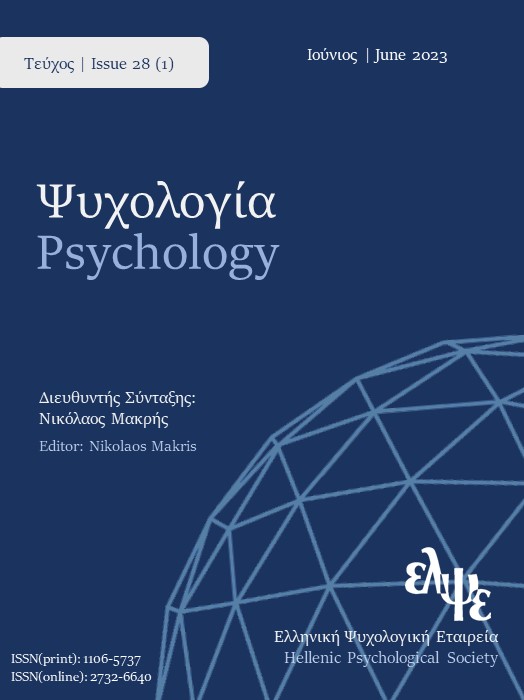Exploring marginalized and privileged gender identities: the expectations of Muslim Roma adolescents on their future employment and family life

Abstract
The aim of the present study is to explore the expectations of adolescents of a minority (i.e., of Roma and Muslim cultural backgrounds from the area of Thrace)[1] and majority status (i.e., dominant group) on their future employment and family life as well as on gender relations. Ninety-one adolescents participated in the study (51 from the dominant group and 40 from the minority, 45 boys and 46 girls). While all participants from the dominant group attended the 3rd grade of Gymnasium or the 1st grade of Lyceum only 8 Muslim Roma participants did so. Adolescents were asked to fill in a questionnaire and to write a short essay titled "A day in my future family". Data were collected in written from the participants of the dominant group and orally from those of Muslim Roma origin. In addition to the statistical analysis, and with respect to the data from the essay, a thematic analysis was carried out in order to identify the adolescents’ images of their future life in both the private and the public sphere. The results of the study reveal the multiple gender identities that are constructed by culturally diverse, with respect to gender and social status, groups of adolescents. They, also, suggest that the participants’ views are shaped by the marginalized or privileged categories in which they belong to. Finally, results show that as boys and girls of both the minority and the dominant groups project themselves in the future, they try to actively construct the social context they will live in, to position themselves within it and to provide meaning to gender relations.
[1]The Thracian minority is the only officially recognized minority in Greece and its position is guaranteed by the Treaty of Lausanne (Dragonas & Fragoudaki, 2006). The Thracian minority is not an ethno-culturally homogenous group. Τhese are Greek citizens who are either Roma or of Turkish or Pomak origin. Moreover, it is accorded religious but not ethnic status.
Article Details
- How to Cite
-
Sakka, D., & Papazoglou, I. (2023). Exploring marginalized and privileged gender identities: the expectations of Muslim Roma adolescents on their future employment and family life. Psychology: The Journal of the Hellenic Psychological Society, 28(1), 24–47. https://doi.org/10.12681/psy_hps.34773
- Section
- SPECIAL SECTION

This work is licensed under a Creative Commons Attribution-ShareAlike 4.0 International License.
The journal PSYCHOLOGY adopts a Platinum open-access policy. Submission, processing or publication costs are waived by the Hellenic Psychological Society. Papers published in the journal PSYCHOLOGY are licensed under a 'Creative Commons Attribution-ShareAlike 4.0 International' licence. The authors reserve the copyright of their work and grant the journal the right of its first publication. Third-party licensees are allowed to use the published paper immediately after publication as they wish, provided they retain the defined by the license copyright formalities, regarding the reference to its author(s) and its initial publication in the journal PSYCHOLOGY. Moreover, any adjusted work should be shared under the same reuse rights, so with the same CC license.


